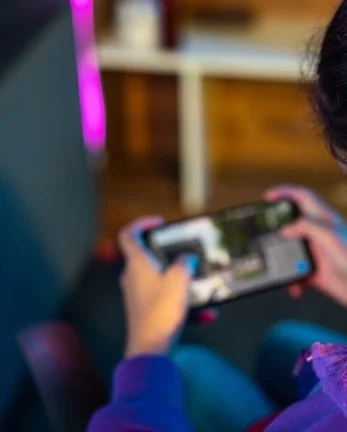Chandigarh, Oct 19: What began as a late-night wrong number soon turned into a statewide campaign against screen addiction. Haryana Director General of Police (DGP) OP Singh has used an accidental call from a child to launch a public-safety advisory warning families about the dangers of excessive screen exposure among children.
According to officials, Singh personally verified the caller’s well-being after receiving the unexpected call and spoke briefly with the family to ensure everything was fine. The next morning, he shared the episode on X, using it as a springboard to urge parents to set boundaries around screen use.
“Got a late-night call — turned out the caller’s child had dialled by mistake. Before hanging up, I reminded him: phones teach quick swipes, not slow smiles. Shared a video on how screens rewire young brains. Let kids grow with mud on hands, not glass in palms,” Singh wrote in his post.
Accompanying the post was a short Hindi explainer and an expert-led video outlining how prolonged screen exposure can impair attention spans, disrupt sleep, stunt social skills, and affect emotional growth — effects that often go unnoticed until academic or behavioural changes appear.
Calling it both a parenting and public-safety issue, Singh appealed to parents to enforce “digital discipline” at home. “No phones at dinner, no screens an hour before sleep, and device-free zones for homework and family time. This is not just a parenting concern — it is a public-safety concern,” he said.
Singh warned that children who are sleep-deprived, irritable, or socially withdrawn due to overuse of screens are more vulnerable to online predators, cyberbullying, and risky behaviour. He urged families and schools to intervene early.
To promote healthier habits, the DGP suggested replacing “passive scrolling” with “active play” — walks, outdoor sports, reading, music, and park time. For younger children, he recommended using handset locks, app timers, and setting clear family rules on screen content and timing.
According to a police statement, the Haryana Police Cyber Cell will roll out a statewide digital-safety campaign to back the DGP’s advisory. The initiative will include weekly social media posts, short educational videos in Hindi, and school toolkits explaining screen-time guidelines by age, signs of digital addiction such as irritability or poor grades, and safe-tech practices.
District police units have been directed to partner with schools, panchayats, and Resident Welfare Associations (RWAs) to hold weekend awareness sessions for parents. These “parents-only” meets will feature 20-minute modules led by counsellors or trained volunteers.
Police stations will also circulate a “digital curfew” message — discouraging the use of devices in bedrooms after lights-out — through WhatsApp groups and local FM radio broadcasts.
The campaign, officials said, aligns with Singh’s broader focus on mental health and emotional resilience, both in the community and within the police force. “If the police are asking families to take mental health seriously, the department must model it inside,” an official noted, citing Singh’s recent pilot for confidential counselling and empathetic leadership training for supervisors.
A school counsellor who previously collaborated with the police on outreach programmes said the message carried special weight because it came from the top. “Framing screen addiction as a safety and well-being issue, not just a lifestyle choice, helps parents act,” he said.
Next steps under the initiative include distributing a bilingual leaflet titled Healthy Screens, Healthy Sleep, a three-minute video created with child psychologists, and a simple family pledge campaign — No Phones at Dinner, No Screens Before Sleep.
Police officials said the campaign’s goal is to start conversations in homes about mindful technology use. “The message is simple,” an officer said. “Screens can teach, but they can also trap. It’s time to bring balance back.”

